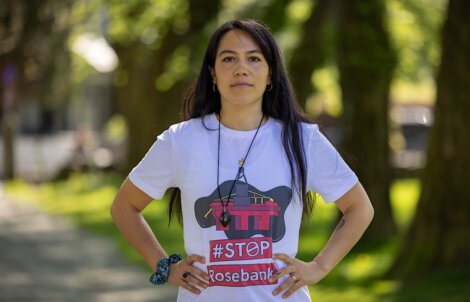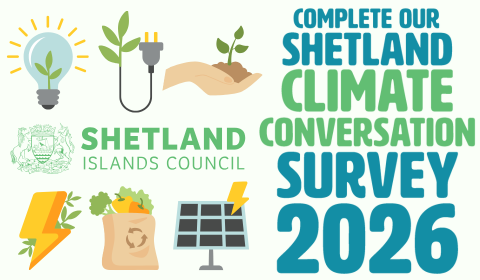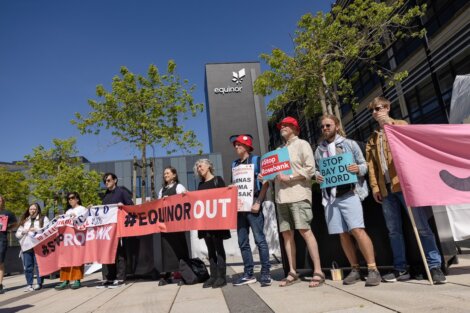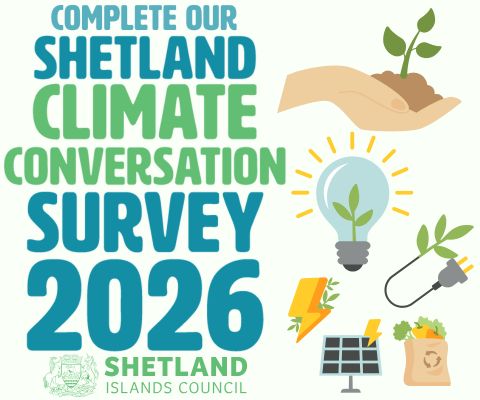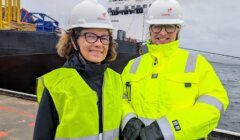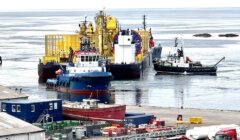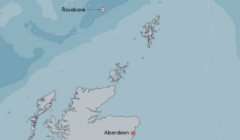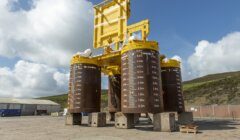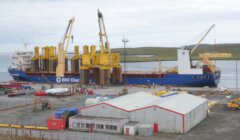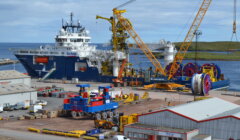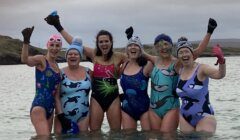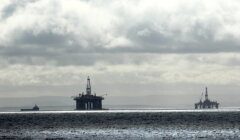Viewpoint / ‘A really bad deal for Shetland’
Local climate campaigner Andrea Sanchez finds ‘no adults in the room’ at Equinor when she attended the Norwegian oil company’s AGM earlier in May. Here she argues that developing the Rosebank oil field has little to do with ‘transitioning to clean energy’.
TWO weeks ago I travelled to Stavanger to address the board of the Norwegian state-backed oil and gas giant Equinor – which has a licence from the British Government to develop the Rosebank oilfield, which lies just 80 miles off the coast of Shetland.
At the company’s Annual General Meeting I told Equinor’s chief executive officer Anders Opedal that fields like Rosebank are a long-term risk for places like Shetland.
The risk is so serious that he must stop this development, now. I spoke to the meeting in my professional capacity as an ecological economist. I am also the mother of three young children and deeply concerned by what Rosebank represents – a worse future for our bairns on an increasingly uninhabitable planet.
In Shetland we’re at the sharp end of the North Sea’s move away from oil and gas production and therefore perhaps more conscious than most about what this involves.
For many years North Sea oil has brought wealth and employment to our islands but this is already a declining industry. Local jobs in oil and gas have more than halved in the past decade and we’re now seeing the lowest level of industry investment around Shetland for 50 years – even while company profits soar.
Equinor made profits of £29 billion last year. It will receive tax breaks worth around £3 billion to develop Rosebank – meaning the British public will foot the bill for over 90 per cent of the development costs.
But most of the oil will go abroad to be refined and the profits from selling it will go to Norway, as the majority owner of Equinor.
The Rosebank oil, by the way, doesn’t belong to Equinor. It belongs to us, which is why Equinor had to buy a licence from our government to exploit it.
There’s no doubt Rosebank is a very good deal for Equinor and its shareholders but it’s a really bad deal for the people of Shetland and Scotland. That’s because, in addition to the financial cost of those tax subsidies, it’s us, not Equinor, who will bear all the environmental costs.
If it goes ahead, Rosebank will release more CO2 into the atmosphere than 28 of the world’s lowest income countries emit between them in a year. It will also need a pipeline disrupting a rare and protected marine ecosystem, the ‘Sponge Belt’ between Faroe and Shetland.
At Equinor’s AGM I saw there were no ‘adults in the room’ making sure that we don’t breach climate limits or endanger protected wildlife. There were just oilmen driven by the economic system to make as much money as they can, for as long as they can.
Cut through Equinor’s public relations about ‘transitioning to clean energy’ and being ‘net zero compatible’, and you find a company that sees a prospect like Rosebank simply as a means of making even more money.
In 2023, 99.85 per cent of all the energy Equinor produced was fossil fuels, while only 0.15 per cent was renewable energy. Equinor is looking to expand oil production at the very moment when all the experts – from the head of the UN to the International Energy Agency and the world’s climate scientists – are saying we can have no new oil and gas developments if we’re to stay within liveable climate limits.
As I spoke to Equinor’s directors, I realised they had no interest in protecting workers, building a fairer energy system, or protecting our bairns’ future. We can’t look to them for answers.
Shetland is blessed with natural resources that we could use to power our future, provide jobs for the long-term and ensure that local folk can afford to stay warm during the winter.
But we can’t get there as long as we remain enslaved to an industry that cares for nothing except its own financial gain.















